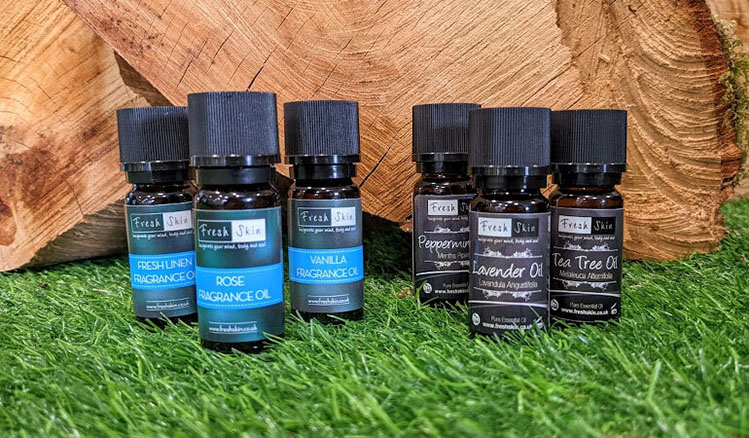Essential Oils, Fragrance Oils
The Difference Between Fragrance Oils and Essential Oils
We are often asked about the difference between fragrance oils and essential oils. Many people assume they are variations of the same thing, but there are several differences between the two. Here we explain those differences, explore their individual uses and offer some handy tips to ensure you can enjoy them safely.
What are natural essential oils?
Natural essential oils are 100% pure plant oil extracts derived from the leaves, flowers, branches and roots of various herbs, shrubs, trees and flowering plants. Each oil is carefully extracted through either steam distillation or mechanical methods (such as cold pressing).
Natural essential oils are not combined with a carrier oil or any other ingredients, which means they are never diluted or manipulated. Because each plant consists of hundreds of chemicals (some still unknown), and due to the changing of seasons, it is almost impossible to reproduce the make-up or aromas of natural essential oils synthetically. Natural essential oils are as pure as they come.
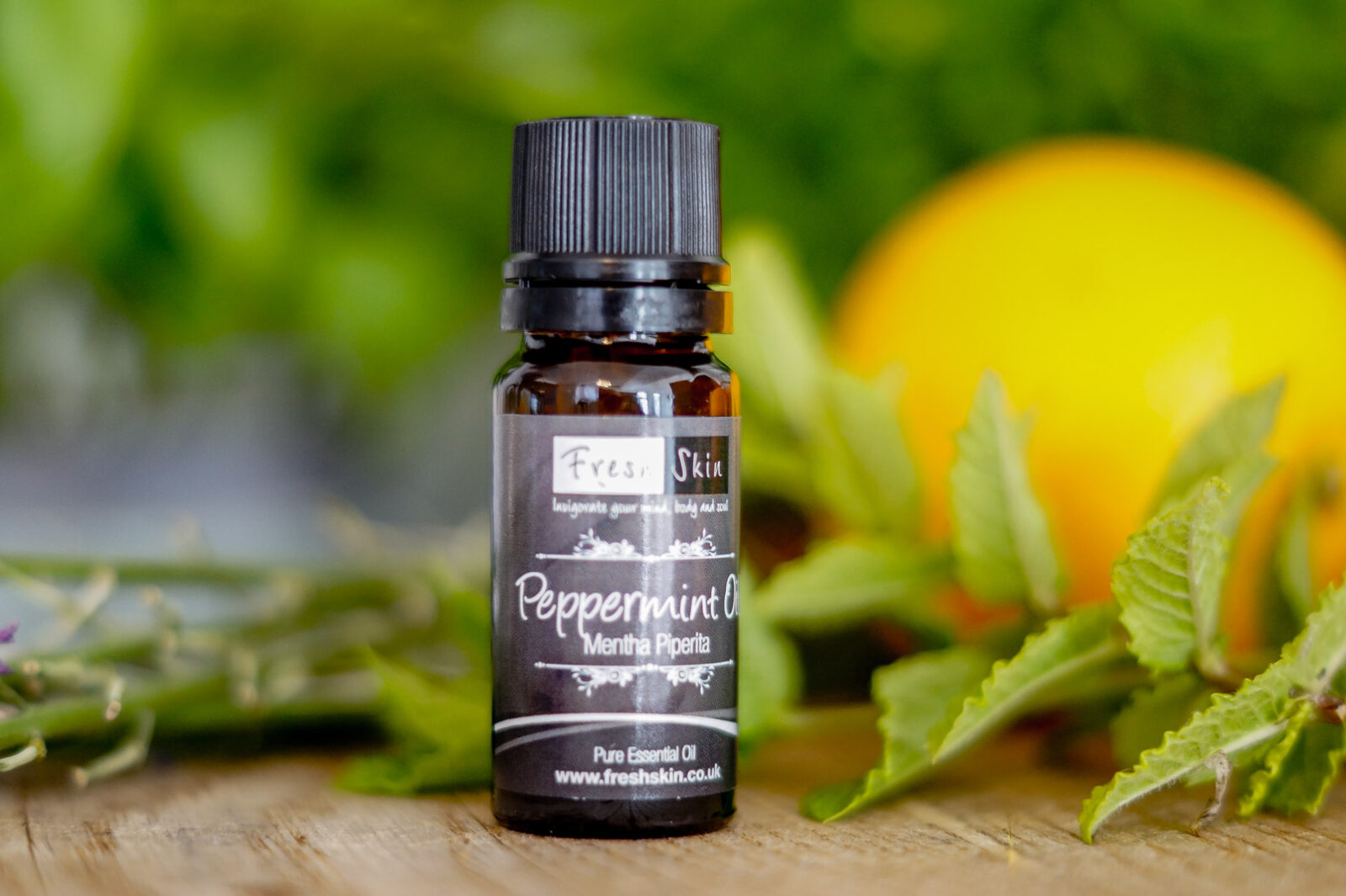
What are essential oils used for?
For over 6000 years, people from civilisations worldwide have used essential oil aromatherapy to help improve physical and mental health. Today, people most commonly use essential oils to aid relaxation and ease anxiety. From beauty products to candles and diffusers, there are many ways to enjoy essential oils; however, in their purest form, they can be very strong, so care must be taken.
How to use natural essential oils:
- Diffusing – by popping a few drops into a diffuser, you can instantly change the mood and ambience of the room. With the aromas stimulating your senses and nervous system almost immediately, many people find it diffusing essential oils reduces stress and anxiety.
- Directly from the bottle – many prefer the traditional way of using essential oils; direct inhalation from the bottle through a couple of deep breaths.
- Steam – grab a bowl of hot water, pop in a few drops of essential oils, place a towel over your head, and breathe in the intoxicating and relaxing aroma.
- In homemade products – essential oils are commonly used in home products such as candles, wax melts and potpourri as well as bathroom items; they work well in bath bombs, shampoos and lotions; just remember, they will need to be heavily diluted first with carrier oils to avoid skin irritation.
- For those who want to feel refreshed and rejuvenated, they work remarkably in the increasingly popular shower bomb.
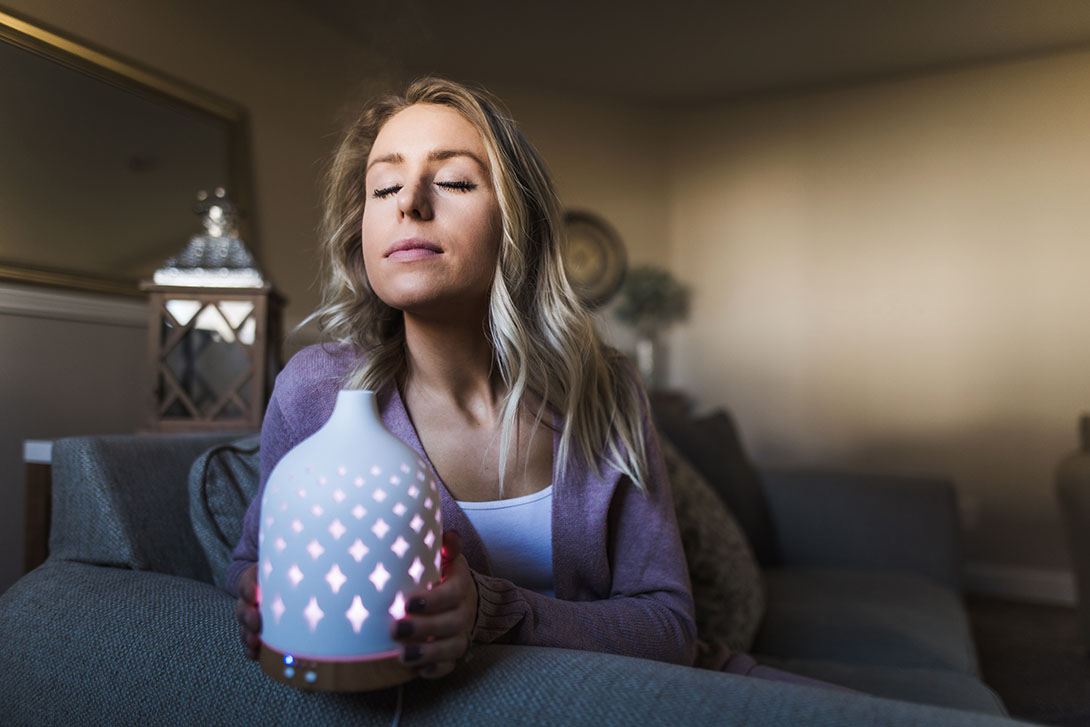
How to safely use natural essential oils
- Always check the quality of the producer of your natural essential oils. Use a trusted supplier and check that no extra chemicals or ingredients have been added; this could cause a reaction.
- Don’t be fooled into thinking that just because an essential oil is natural, it cant be harmful. Essential oils contain very high concentrations of chemicals, so always do a patch test on your skin to check for any irritation.
- Keep your supply of essential oils up to date. Older oils (typically more than three years) can be spoiled through exposure to light and oxygen. If you notice changes in how an oil smells or looks, it’s more than likely time to throw it out.
- Certain oils (particularly edible ones) can cause actual harm to your skin; cumin oil is particularly unsafe for direct use on the skin, and using citrus oils on sun-exposed skin is not advised.
- Do not swallow or ingest any essential oil; this can be extremely dangerous.
- Consult with a doctor about using essential oils beforehand if you are worried about how they may counteract any prescriptions or existing treatments.
- Avoid using undiluted oils on any damaged or inflamed skin; this can cause harm.
- Children and the elderly’s skin can be far more sensitive, meaning essential oils may need extra dilution. Certain chemicals can be hazardous for children; therefore, children under six should not use essential oils. If in doubt, ask your GP for advice.
- Keep your essential oils locked away and out of reach from children and animals. Pet owners should refer to our recent blog on essential oils for pets for more information.
- Pregnant women should take extra care when using essential oils and seek medical advice if unsure.
Some of our most popular essential oils:
- Lavender – a natural calming aid
- Peppermint – a perfect pick me up
- Sweet Orange – to uplift and refresh
- Tea Tree – healing powers
- Eucalyptus – to invigorate the mind
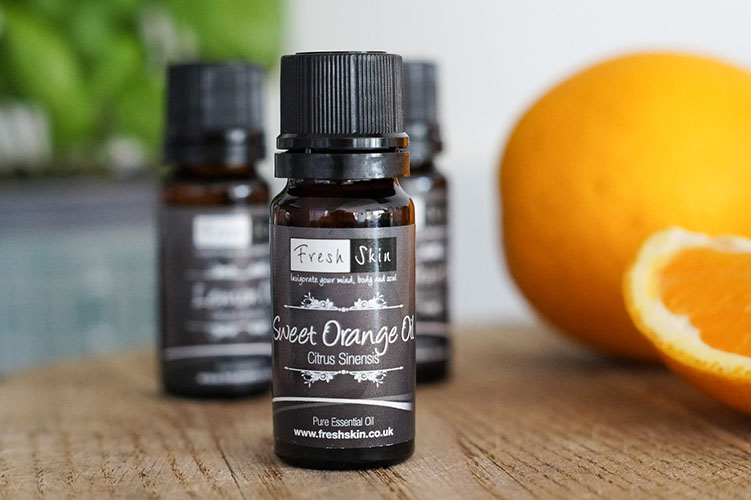
What are fragrance oils?
Unlike essential oils, fragrance oils are blended in a laboratory and composed of raw ingredients taken from nature and mixed with synthetic materials to create longer-lasting and more complex blends. Fragrance oils will typically contain a mixture of essential oils, absolute oils, extracts and isolates from essential oil, as well as synthetic materials.
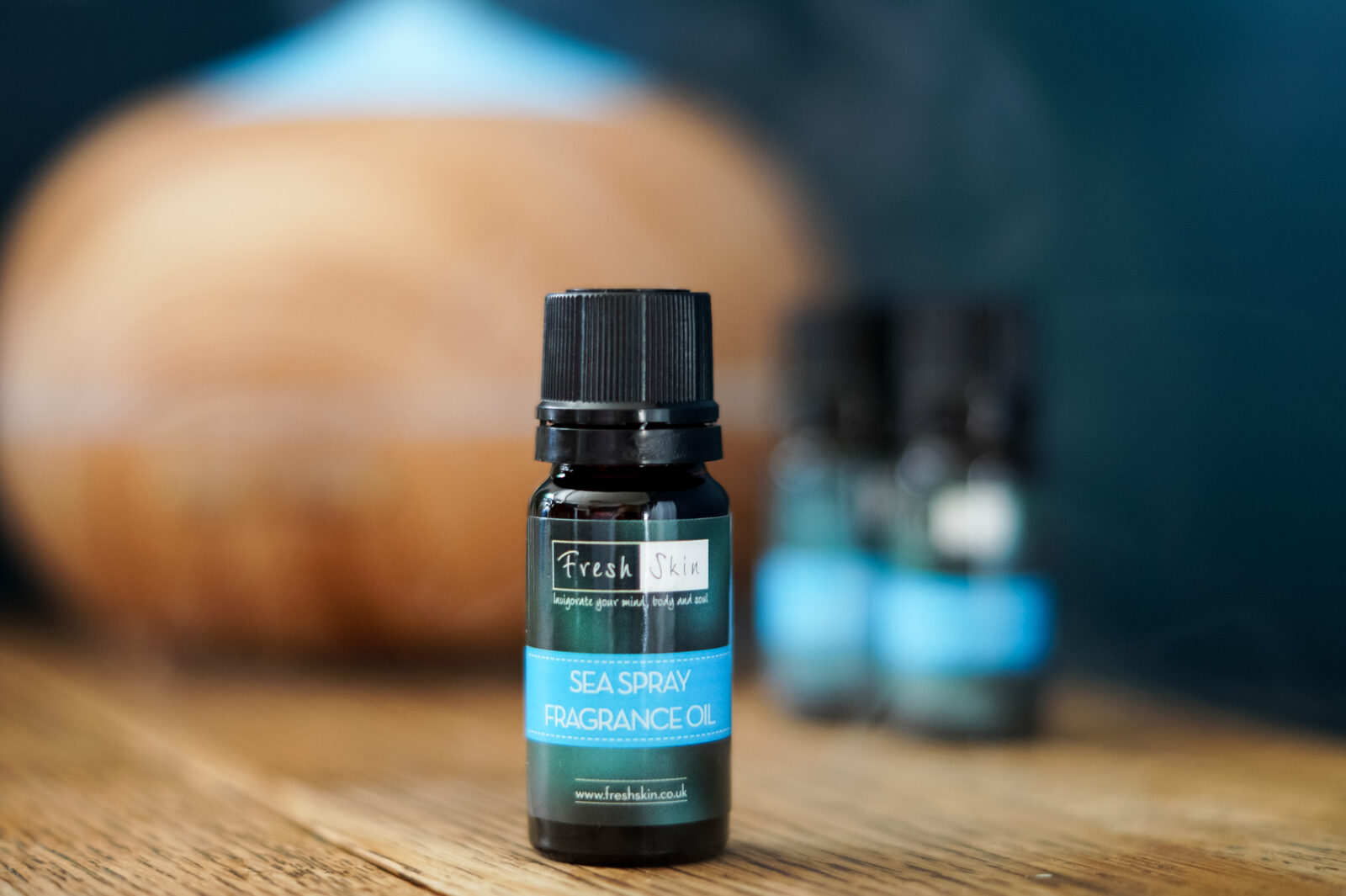
What are fragrance oils used for?
Because fragrance oils are artificially created and often diluted with carrier oils, they do not offer the same therapeutic properties that natural essential oils do. Fragrance oils are more commonly used to make aromatic products such as massage oils, perfumes, candles, soaps, wax melts, lotions, bath bombs and room sprays. This is not to say that fragrance oils don’t have their benefits, with many using the intoxicating scents of fragrance oils for overall wellbeing. Because they are mixed and created in laboratory settings, fragrance oils can be designed to replicate all manner of scents, from nostalgic aromas to fresh, fruity combinations and designer perfume imitations.
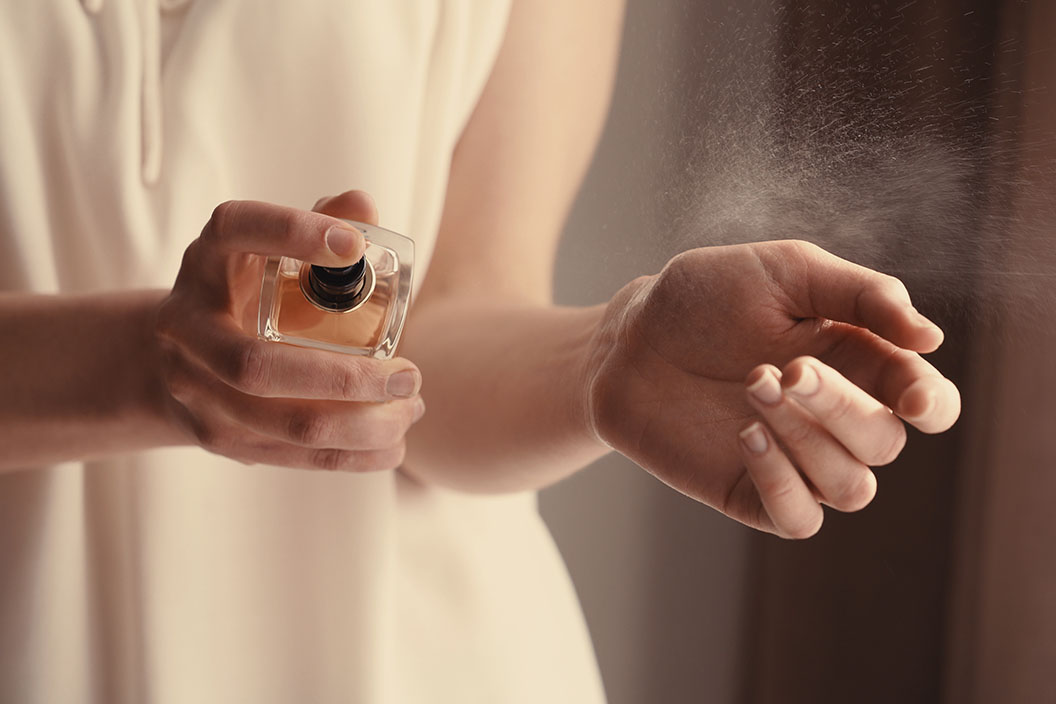
How to safely use fragrance oils
Just like essential oils, fragrance oils should be used carefully, especially when applied to the skin. Some simple tips for the safe use of fragrance oils include:
- Always use a credible supplier when choosing your fragrance oils and check they have any appropriate certifications such as Safety Data Sheets, IFRA certification and allergen declarations.
- Fragrance oils are 100% concentrated, so don’t be fooled by the strength of the aroma you smell directly from the bottle; use in moderation and follow the dilution recommendations on the bottle.
- You should keep your fragrance oils out of direct sunlight and in a cool, dark, dry and secure place.
- Keep your fragrance oils for no longer than two years. To help preserve fragrance oils, always keep the bottle cap sealed and use a bottle with little room for space to avoid overexposure to oxygen. If you buy larger volumes, consider transferring the remaining fragrance oil to a smaller bottle as you go.
- Keep your fragrance oils away from naked flames and heat sources; they are highly flammable.
- Like essential oils, fragrance oils can be toxic, so do not swallow them and keep them away from children and animals.
- Fragrance oils come with Safety Data Sheet (SDS) guidelines that detail the precautions related to that specific oil; check these carefully.
- Avoid direct contact with the skin, and where possible, use gloves and eyewear when handling fragrance oils.
- Pregnant women and those undergoing treatment or taking medication should consult a GP before using fragrance oils.
Some of our most popular fragrance oils:
- Fresh Linen – to energise the home environment
- Vanilla – a calming mood booster
- Christmas Spice – a festive favourite for the home
- Baby Powder – nostalgic and familiar
- Rose – lightens and calms the atmosphere
- Coconut – a summery scent full of fun
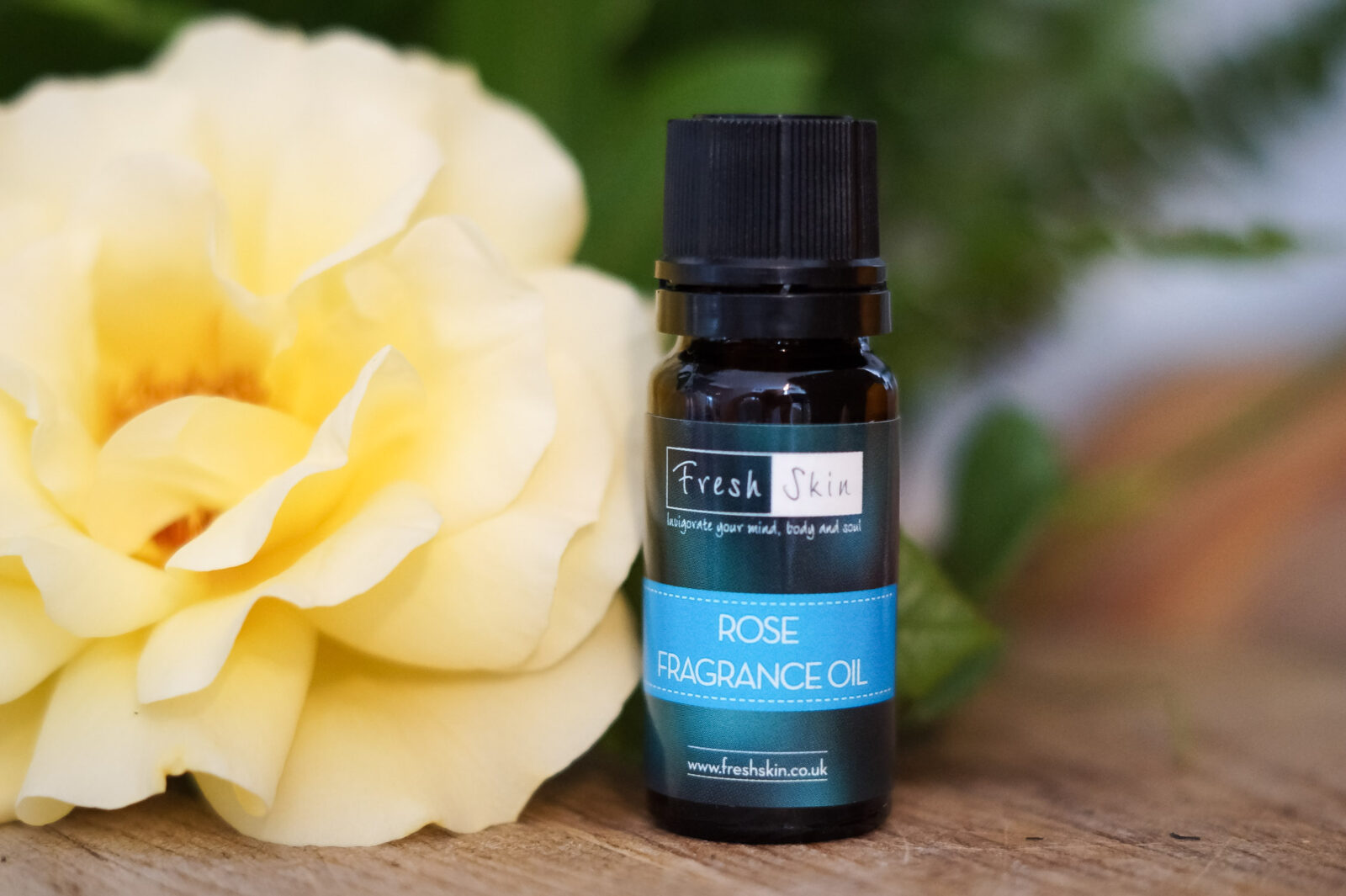
Although there are many differences between fragrance oils and essential oils, both can play a significant role in promoting our wellbeing. From creating beautiful all-natural beauty products to cleansing the home with your favourite blends, these wonderful oils are enjoyed by aromatherapists and DIY enthusiasts alike.
Our essential oils and fragrance oils are created using only the latest technology and extraction methods. All of our products are vegan-friendly, too.
Discover them all at Freshskin Beauty.


